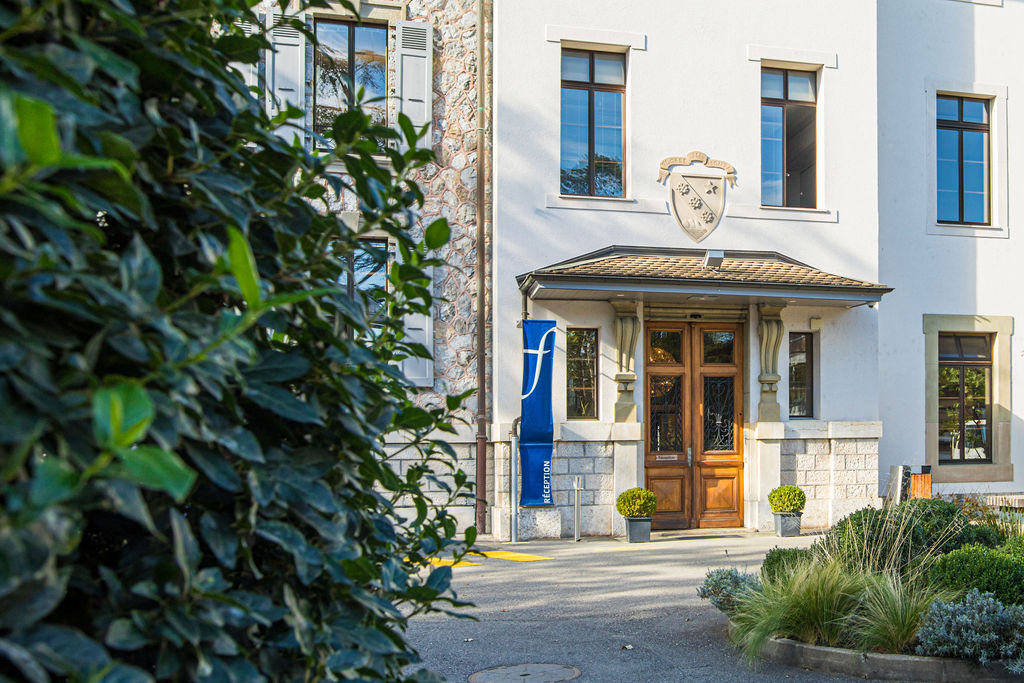
Institut Florimont is an international school located in Petit-Lancy, near Geneva, Switzerland, founded in 1905. The school’s mission centers on enabling each student to cultivate their full potential within a welcoming and caring environment. Drawing from over a century of educational experience, Institut Florimont offers the best of Swiss, French, and international education systems to students from kindergarten through secondary education.
The school serves a diverse, multilingual community of students representing numerous cultures and nationalities, reflecting Geneva’s international character. Institut Florimont is co–educational and welcomes students of all religions, embracing the diversity of its student body as a cornerstone of its educational philosophy. The school’s faculty includes native speakers and multilingual educators who support students across multiple language pathways, creating an authentically international learning environment where linguistic diversity is celebrated and leveraged for educational excellence.
Institut Florimont distinguishes itself through their comprehensive multilingual approach that extends far beyond traditional bilingual education. The school offers bilingual programs in French and English starting from the primary level, allowing students to develop deep proficiency in both languages throughout their educational journey. This bilingual foundation supports multiple diplomas at the upper secondary level, including the French baccalaureate, Swiss maturité with a French–English bilingual option, and the International Baccalaureate (IB) with bilingual capabilities. The school’s multilingual innovation extends to its diverse language offerings, providing instruction in German, Italian, Spanish, and Mandarin Chinese across different sections. This plurilingual approach reflects the linguistic reality of Geneva’s international community while preparing students for global citizenship. Institut Florimont’s educational model seamlessly integrates three educational traditions—Swiss, French, and international—creating a unique pedagogical approach that honors linguistic diversity while maintaining academic rigor. The school’s commitment to authentic multilingual education is demonstrated through its partnerships and exchanges with leading schools worldwide, fostering global connections that enhance students’ cross-cultural competencies.
The idea of joining the MLRC School Network took on a new dimension during an eventful evening in Rome at the MLRC Research Symposium. While reviewing a restaurant menu, the three representatives from Institut Florimont had no trouble converting the price of “Cacio e Pepe” into Swiss Francs—but were momentarily puzzled by a more basic question: What exactly was “Cacio” – Cream, Cheese, Ham? And was it value for money? As the saying goes, “When in Rome, do as the Romans do”—but what happens when you’re not entirely sure what the Romans are doing? This brief moment of linguistic and cultural uncertainty—prompted a reflection on the nature of multilingual competence. It underscored the reality that language learning is not just about decoding words, but about understanding context, culture, and meaning in authentic situations. That same day, after engaging with research on collaboration, inclusivity, and translanguaging, the team found themselves naturally formulating a research question together in the restaurant!

What happens when a multilingual school community turns research into action? At Institut Florimont, joining the MLRC School Network has sparked a powerful shift toward evidence-based, inclusive education. Teachers have embraced a culture of inquiry, rethinking long-held assumptions and strengthening collaboration across departments. The school’s engagement with the MLRC has deepened its commitment to multilingual learning—not just in principle, but in practice. It undertook a focused inquiry into translanguaging strategies in multilingual IB mathematics classrooms. This study revealed that nearly half of the International Section students do not speak French at home, representing 29 different languages, and that students with only one non-French home language are particularly vulnerable—42% reported a moderate-to-strong impact of French on their mathematics learning. Challenges such as cognitive overload from decoding instructions, gaps in mathematical vocabulary, and confusion with synonyms were identified. Yet the research also highlighted students’ natural tendency to engage in internal translanguaging, mentally processing tasks in their stronger language before responding in French. These findings deepened staff awareness and reinforced the need for structured, inclusive practices: while 72% of teachers were open to multilingual strategies, few departments had formal policies or training in place. As a result, the school is now poised to implement evidence-based translanguaging protocols, informed by the MLRC School Network and tailored to its multilingual context—strengthening both academic equity and the school’s commitment to inclusive education.
The MLRC looks forward to ongoing collaboration with the teacher-scholars at Institut Florimont and their continued contributions to multilingual education in the international school community!




